France braces for new ‘day of action’ as turmoil over Macron’s plan intensifies
Hundreds of thousands of people are expected to take to the streets across France on Tuesday against President Emmanuel Macron’s controversial pension reform that has sparked chaos in the country.
Dubbed the "day of action" by French trade unions, Tuesday's protest is the tenth such mobilization since the industrial action started in mid-January against the law, which includes raising the retirement age from 62 to 64.
The countrywide protests on Thursday witnessed violent clashes between protesters and security forces as the latter used indiscriminate force including teargas canisters to suppress protesters calling for Macron's ouster.
French interior minister Gerald Darmanin said 13,000 security personnel would be deployed in different cities on Tuesday for the protests.
According to Darmanin, a total of 457 people were arrested during Thursday’s protests as French police fired tear gas and attacked the protesters angry with Macron’s use of constitutional executive powers to push through the law that has prompted calls for this government's dismissal.
The French interior ministry said that around 119,000 people marched in Paris on Thursday, a record for the capital during the recent pension protests.
According to CGT trade unions, nearly 3.5 million people stormed the streets in a nationwide general strike with public anger showing no signs of abating.
As reported in local media, angry protesters were heard chanting “Macron out” as they marched in Paris and gathered at Place de la Bastille — the site where the French revolution started.
On Monday, a group of 30 lawyers wrote an open letter expressing their “great concern” over what they called arbitrary arrests of hundreds of people, accusing the police of using the judicial system and arrests as a tactic to foil protests.
It is expected that the new wave of strikes will impact many sectors such as transport, energy and oil refining, and will be joined by teachers, gas and electricity workers and train drivers across the country
Rubbish collectors have continued their strike since Sunday, as more than 8000 tons of garbage has piled up in the capital city of Paris. Workers at an incineration plant outside the capital city have also stopped work since Monday.
Trade unions have blamed the government for the "explosive situation" in the country and have asked workers to continue protesting against Macron's pension reform diktat.
Macron has said the legislation, which his government pushed through the French Parliament without a vote last week, would come into force by the end of the year despite escalating tensions and calls for his ouster.
Prime Minister Elisabeth Borne has scheduled talks with unions, political parties, local authorities and members of the parliament in a bid to stabilize the situation but the protesters are in no mood to retreat or surrender.
Laurent Berger, the head of the moderate CFDT union, announced he would agree to negotiate only if the reform was first "put to one side".
Popular outrage over Macron imposing the bill without a parliamentary vote has turned into the biggest domestic crisis of Macron's second mandate.
On Friday, Britain’s King Charles III was also forced to postpone his state visit to France as violence erupted in many cities in response to the call for nationwide strikes given by trade unions.
D-8’s role in Iran’s economy after Cairo summit
China slams US as ‘war-addicted’ threat to global security
China ‘firmly opposes’ US military aid to Taiwan
VIDEO | Press TV's News Headlines
President Yoon Suk Yeol to be removed from office
At least 19 Gazans killed by Israeli airstrikes since dawn: Medics
Leader: Iran neither has nor needs proxy forces
US fighter aircraft shot down ‘in friendly fire’ amid aggression on Yemen


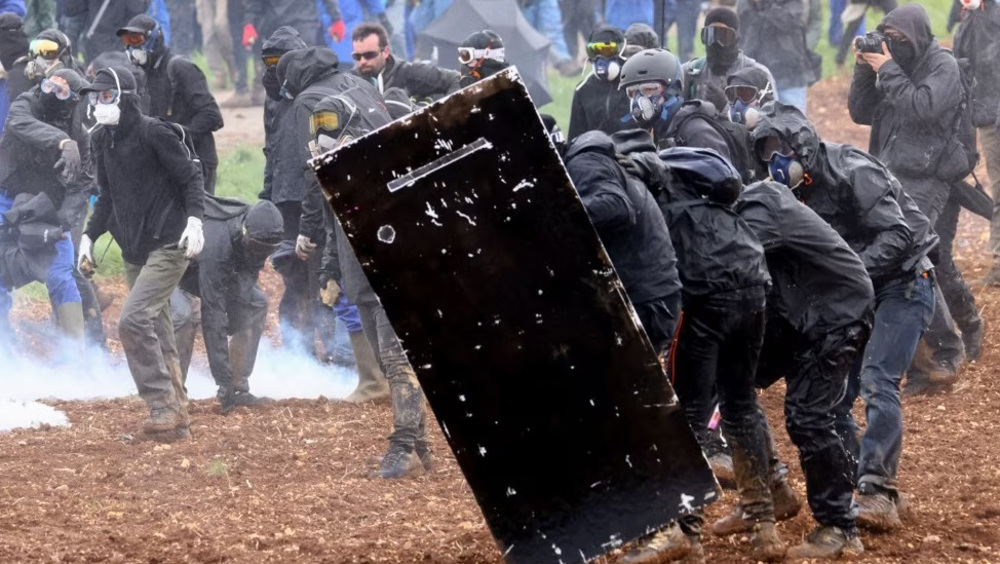






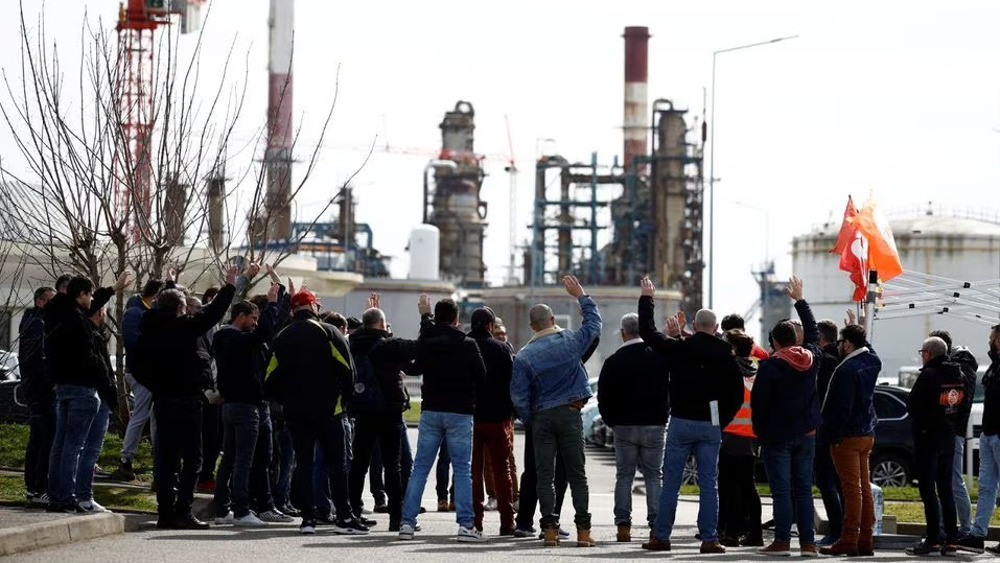
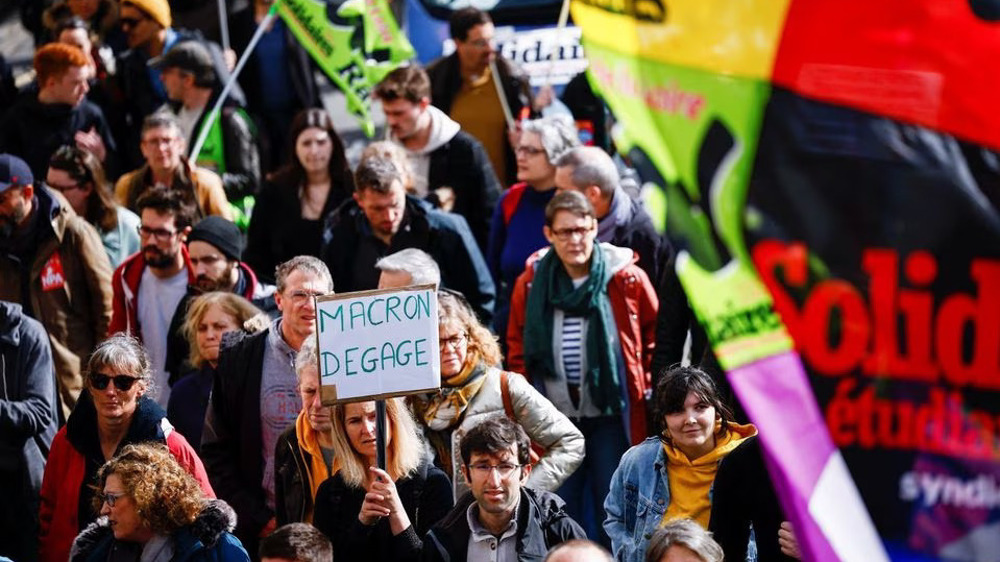
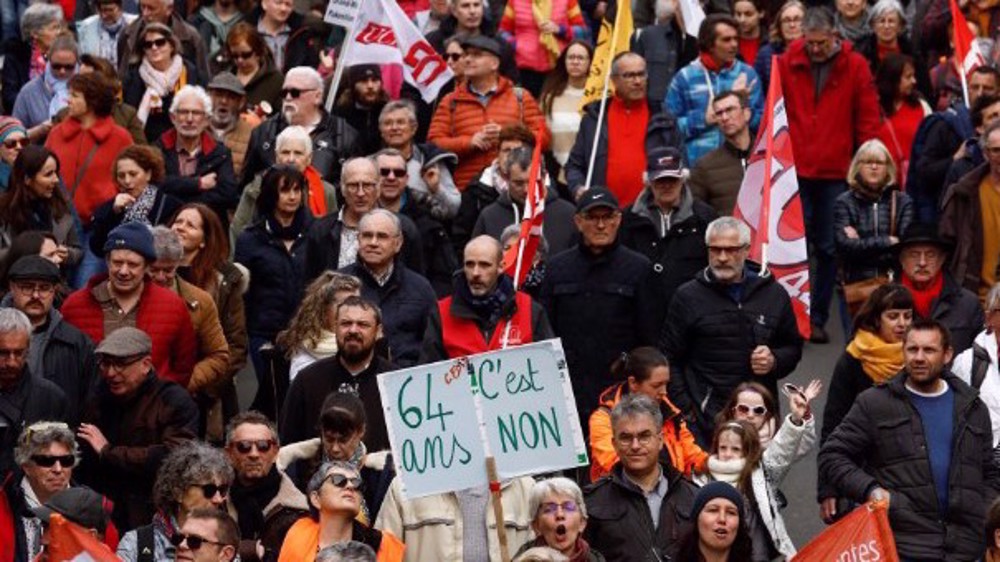
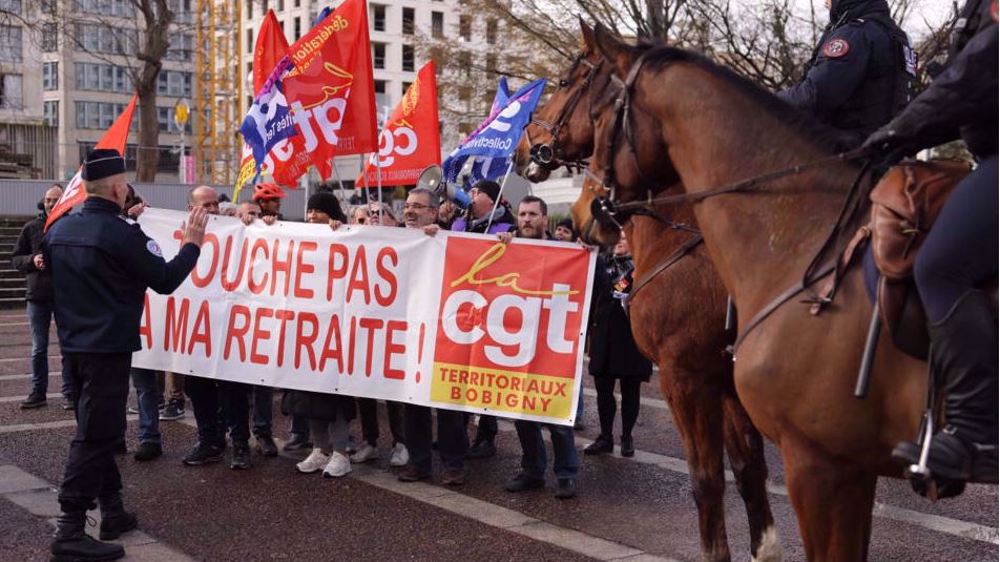
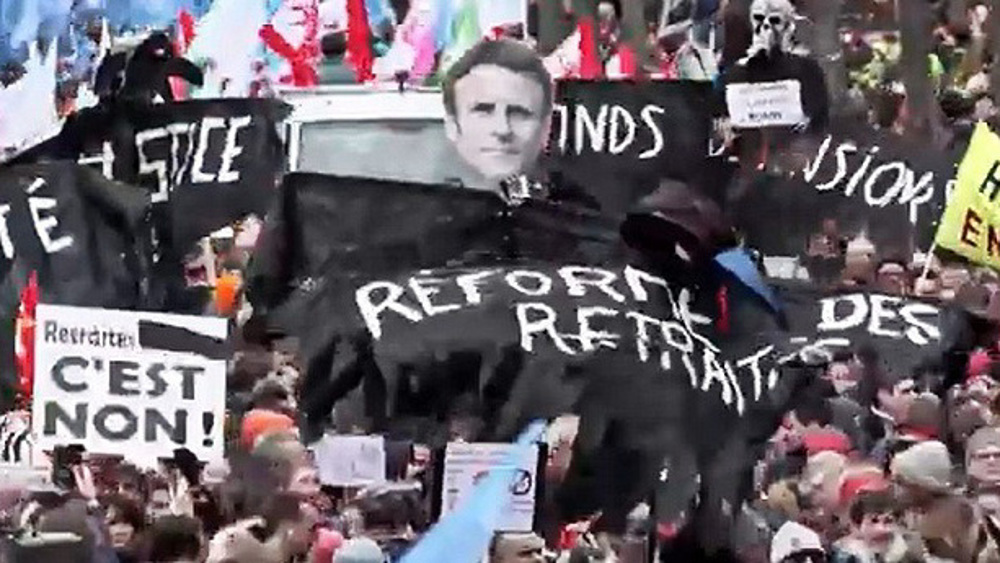
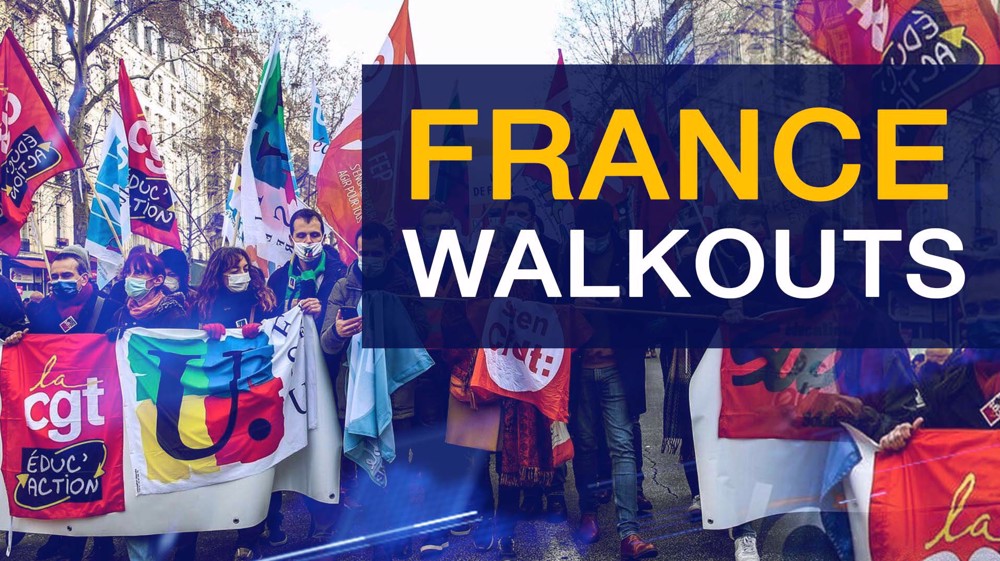
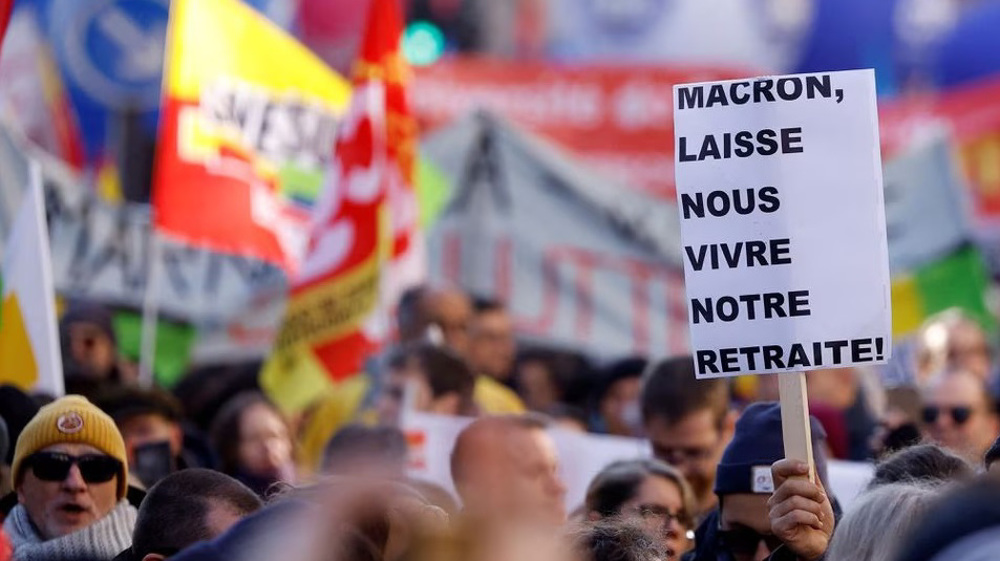

 This makes it easy to access the Press TV website
This makes it easy to access the Press TV website